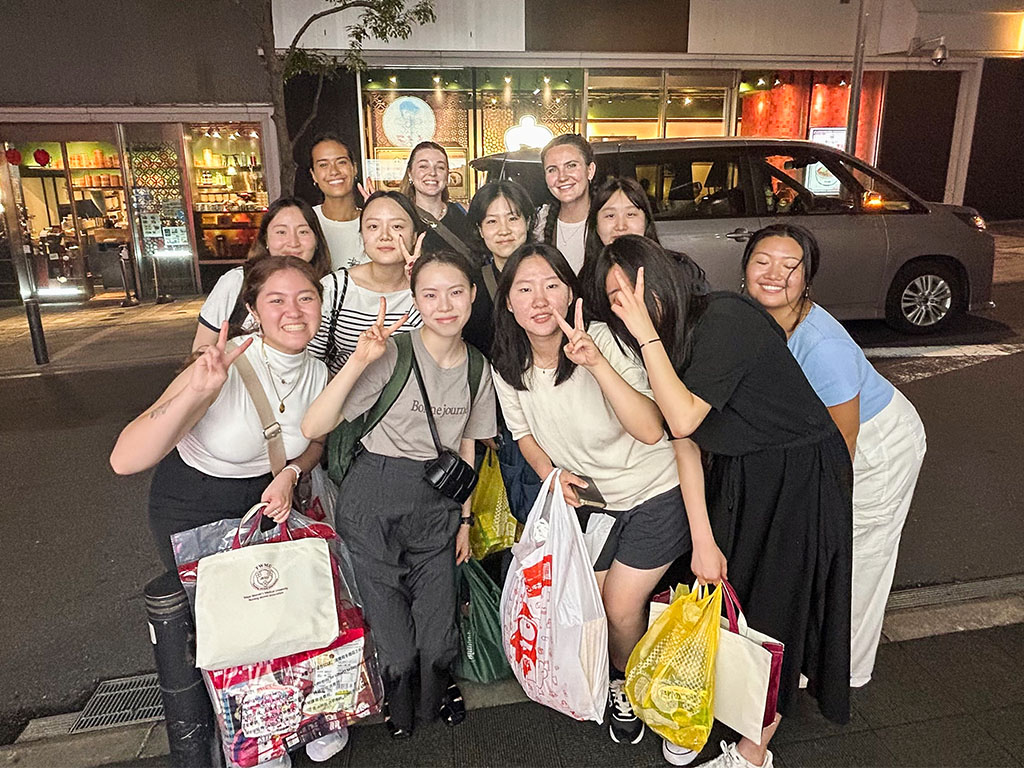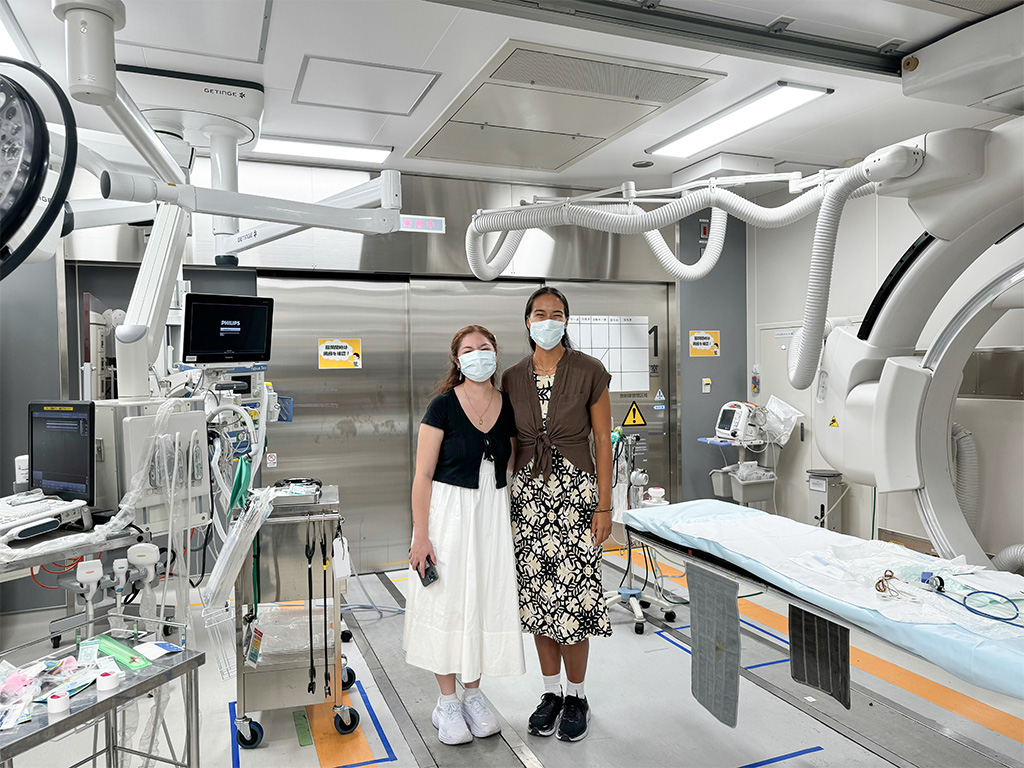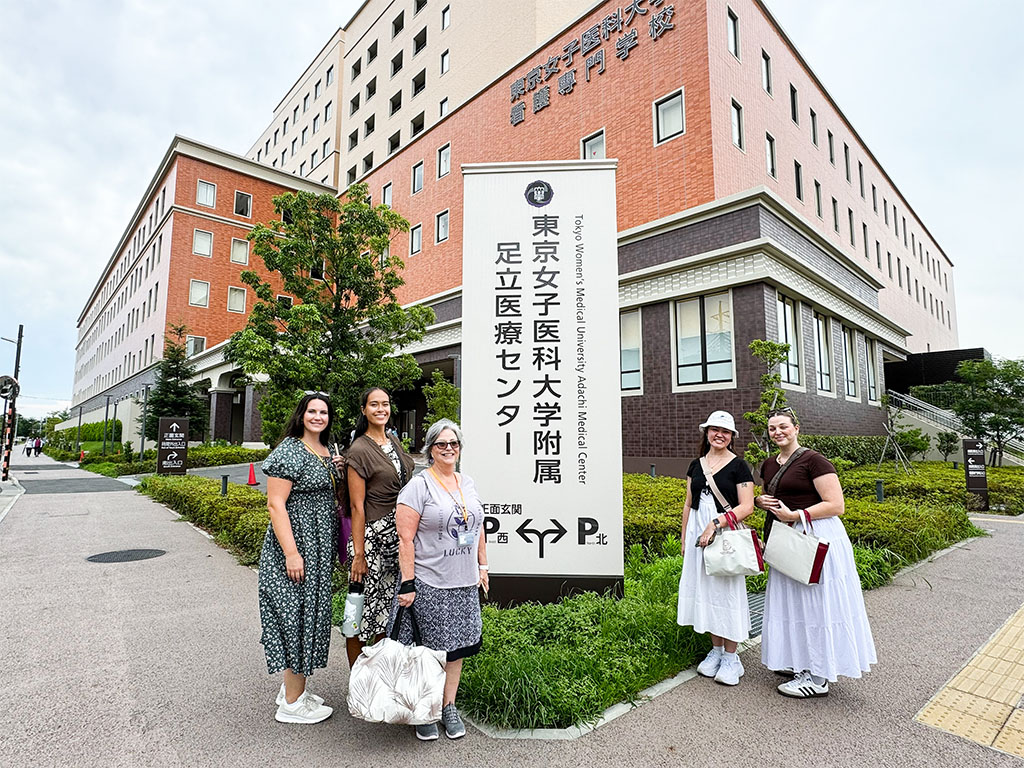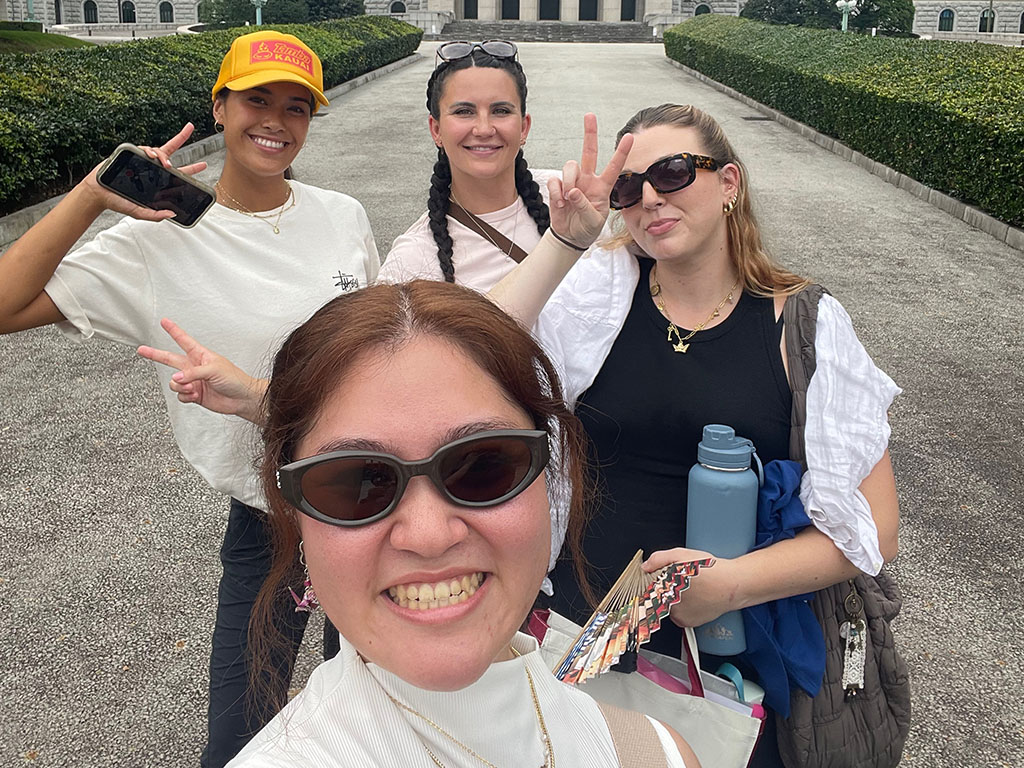In the summer of 2024, four HPU nursing students—Mia Takahashi, Ashley Wright, Brooke Rathe, and Halo Yoshiki—had the unique opportunity to travel to Tokyo for a cultural immersion experience at Tokyo Women’s Medical University (TWMU). Accompanied by HPU nursing faculty member Jo Wakayama, MN, APRN, FNP, the week-long trip allowed everyone to observe healthcare practices in Japan and engage in an international collaboration with students from Ewha Womans University in Seoul, South Korea.

HPU, TWMU, and EWHA nursing students enjoying a night out in Shibuya, Japan.
HPU School of Nursing Dean Edna Magpantay-Monroe, Ed.D., APRN, CMDCP, emphasized the importance of international experiences for nursing students. “Experiential learning that includes cultural immersion is essential for the growth of any future nurse,” she said. “At HPU, we often have cultural immersion with universities in the Asian region like Japan, Vietnam, and Korea. These experiences can be humbling and rewarding. We hope to continue and expand these experiences with our nursing and public health students and create interprofessional collaborations with other colleges within the university.”
Wakayama shared that her most memorable moment on the trip was when the Japanese, Korean, and HPU students each presented a brief report on aging in their respective countries, and how health care is responding to the needs of geriatric patients. “Seeing the students intently compare and contrast facts and ideas just thrilled all of the instructors. And they got along famously, sharing every bit of international information they could in that short period of time. It would be wonderful if all nations could be that way,” she said.
Takahashi reflected on how the trip helped her connect her personal and professional interests. “It was a privilege to participate in HPU’s nursing program at Tokyo Women’s Medical University,” Takahashi said. “My unique background—being born and raised in Hawai‘i with Japanese heritage and prior study abroad experiences in South Korea—allowed me to connect deeply with the diverse work cultures and gain valuable insights into issues related to the aging community and ongoing medical advancements.”
Takahashi also appreciated the opportunity to build friendships across borders. “The combined experience across TWMU, Ewha, and HPU enriched my understanding of the similarities and differences in each school’s approach to healthcare. I also forged meaningful friendships with students from TWMU and Ewha,” she added.
Wright spoke about the insights she gained during the exchange. “It was an honor to join some of my classmates on a trip to Tokyo for a five-day student exchange,” Wright said. “We toured the various facilities associated with TWMU, allowing us to compare their facilities with our own. I learned that Japan provides universal healthcare, and that nursing scope of practice can vary between different countries.”

Mia Takahashi (left) and Halo Yoshiki (right) inside TWMU's Adachi Medical Center's surgical emergency room.
For Wright, the connections formed during the trip were a highlight of the experience. “What I appreciated most were the relationships we formed. I truly enjoyed how three groups of women from different countries came together to learn from and grow with each other.”
Rathe reflected on how the trip expanded her professional perspective. “I am grateful to have visited TWMU in Tokyo, where we toured the Adachi medical hospital, clinics, and parliament building,” she said. “It was a pleasure to connect with the TWMU students about their best practices and learn more about their cultural expectations and views on healthcare.”
Rathe was particularly impressed by the facilities at TWMU. “I was amazed by how advanced their facilities were and how kind and welcoming the Japanese culture is,” she noted. “Taking what I’ve learned and experienced from this opportunity will be an invaluable asset moving forward in my professional nursing career.”
Adding her perspective, Yoshiki described how the experience deepened her understanding of global healthcare practices. “Having the opportunity to experience a top-tier educational university like Tokyo Women’s Medical University was highly insightful and eye-opening,” Yoshiki shared. “As a nursing student, I am grateful to have made connections with other passionate nursing students on an international level, including Ewha Women’s University’s nursing students. Understanding the similarities and differences between our countries’ medical fields keeps me engaged and motivated as we work to enhance patient-centered care and advance the medical field overall. Visiting the Adachi Medical Center was a pivotal learning moment for me, as I experienced advanced technology that made healthcare staff’s jobs more fluent and observed the staff working collaboratively to help their patients.”
Tokyo Women’s Medical University was established in 1900 and has a long history of educating women in medicine. Originally founded as Tokyo Women’s Medical School, the institution’s mission has always been to train women to become physicians with strong knowledge, skills, and a commitment to serving society. The university expanded its mission in 1998 with the establishment of its School of Nursing, furthering its goal of producing highly skilled medical and nursing professionals who can contribute to the healthcare field globally.
For the HPU nursing students, this cultural immersion trip to Japan was a once-in-a-lifetime opportunity to observe international medical practices, build lasting international friendships, and gain a deeper understanding of the cultural nuances that impact healthcare. It represents HPU’s continued dedication to offering students global learning experiences that shape their personal and professional development.
To learn more about the HPU School of Nursing, click here.
All photos courtesy of Halo Yoshiki.




